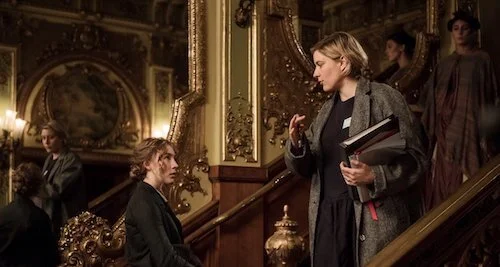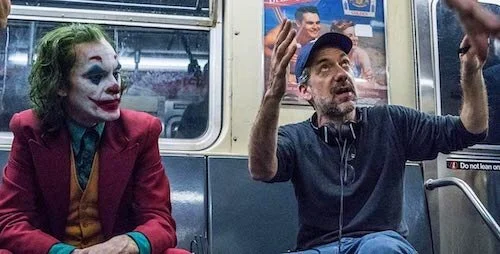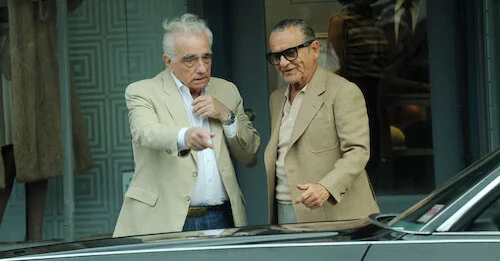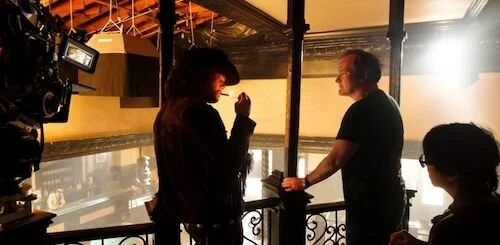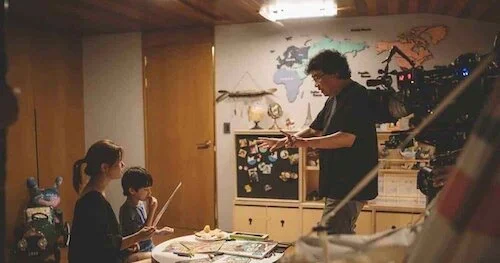Best Director: Ranking Every Oscar Nominee
Initially, we were going to pair up our Best Director article with the final Best Picture entry. However, now we’ve decided against that. Every category from here on out (all of the features and shorts) are Best Pictures of their own kind. It only makes sense that we get the final “craft” category out of the way; plus, the Academy Awards ceremony doesn’t leave Best Director for the end. So, we’re getting this out of the way now. What does this award even mean? When you first study film, you learn about auteurs and signature filmmaking. As you dig deeper — say in an experiment like hours that we do every year — you really are reminded how much of a team effort filmmaking is. So, direction — to us — is the guidance of all of these elements, in an effort to make a visual story more than just a tale. Let’s not hesitate any more.
Here are your nominees for Best Director, ranked from worst to best.
Biggest Snub: Little Women: Greta Gerwig
We have other filmmakers that could have easily been in this spot in our eyes (Céline Sciamma, Joe Talbot, the Safdie brothers), but let’s be reasonable. If there was someone missing that the Academy would have (or could have) nominated, it was Greta Gerwig for her gorgeous rendition of Little Women. We’re not being political, or trying to cause a fuss. She really did one of the best jobs of the year. She made this classic tale quirky but not try hard, modern but not lost, and unique but not clunky. She put new life into this story in such a touching, stunning fashion. If her writing was praised with a nomination (rightfully so), why not her direction which is just as noteworthy?
5. Joker: Todd Phillips
Don’t get us wrong. Todd Phillips does a fairly good job if you look at the bigger picture. The gritty tone works throughout. The political turn is somewhat of a dud, since Joker aims to be an origin story as well; statements get a bit confused. The take on mental illness isn’t quite as bad as some people say, but it is also a bit convenient for this particular story. However, there are the odd details that prove to us that Phillips at least tried (which is more than we can say about some comedy directors trying their hand at challenging dramas). These include visuals (Arthur Fleck’s red suit turning Joker purple under the blue set lights), production (having the streets reflect the garbage strikes and rat infestations) and more. There are occasional head scratching moments (the use of popular, cliche songs during turning points later on in the film do get off putting), but otherwise Phillips, while undeserving, isn’t the worst candidate this category has ever seen.
Our review of Joker
4. The Irishman: Martin Scorsese
It’s a tough year when Martin Scorsese is fourth out of five. He gave us the classic goods with The Irishman, but he’s docked a tiny bit for the occasional flawed decision. Mainly, we’re talking about the use of CGI de-aging when 70 year old performers cannot always replicate younger bodies (the worst example being Frank Sheeran visiting his daughter’s workplace, if you recall what we mean). Sometimes, the over reliance on this technology results in moments that take you out of the film. Otherwise, The Irishman is classic Scorsese in tone, but maybe not entirely in quality (it isn’t Goodfellas, but that’s alright, because Scorsese of any sort is always fine by us). Still, a very solid effort, and a mostly well pieced film made by one of America’s finest cinematic artists.
Our review of The Irishman
3. 1917: Sam Mendes
Sam Mendes has not made a film this great since American Beauty, and he has certainly tried with every effort. 1917 is consistent in tone the entire film, which is actually harder than you’d imagine when it comes to making a single shot film (it’s actually this effort that pulls off said achievement). This tight rope balancing act is well paced, steadily designed, and constantly thrilling. Mendes never feels the need to get supremely corny to have comedic relief, and he doesn’t make 1917 as reliant on danger as you may imagine. It’s a nice, poetic balance, and it’s honestly quite a relief.
Our review of 1917
2. Once Upon a Time in Hollywood: Quentin Tarantino
Not everyone feels that Hollywood is the film that we saw, which is fine. We understand why Quentin Tarantino at his warmest is a polarizing result. It’s nice to see Tarantino’s signature electricity in a film that’s not cynical or edgy as his usual fare. Before, Tarantino’s references felt like flexing. In Hollywood, it’s entirely out of love. The ‘60s throwback is driven by nostalgia, but he isn’t blinded by looking back; he continues to tell a story on his own terms. It’s a fantastic blend: a new side of Tarantino, whilst still being the cinema dork we all love. The best part is how re-watchable Hollywood is. As it is not solely reliant on tension or bite, Hollywood is anxious on the first watch, and mesmerizing every instance afterward.
Our review of Once Upon a Time in Hollywood
1. Parasite: Bong Joon-ho
Genre bending is far more difficult than you may think. Bong Joon-ho’s Parasite is such a cluster of conventions, labels and emotions, that it’s truly its own entity. It starts off as a dark comedy and ends a Hitchcockian thriller: the falls from grace of the judgemental elite that lose everything. The amount of symbolism (the party involving Native American outfits in a film about stolen property is not coincidental), emotional juxtaposition, and artistic dexterity here is impossible to describe in one paragraph. Joon-ho pulled off the rare achievement of making a film this singular over one hundred years into the medium. A lot of that is his converging of tones and styles. Can you imagine anyone else making Parasite with this many natures? Please don’t let there be a Hollywood remake. Please.
Our review of Parasite
Who we want to win: Although it would be nice to see Quentin Tarantino finally win an Oscar for directing, no one pulled off a filmmaking juggling act like Bong Joon-ho this entire year (barely in this decade).
Who we think will win: Sam Mendes has cleaned up until now. We’re guessing he’s going to achieve his second Academy Award. In fact, we’re certain of it.
Tune in tomorrow for our next Academy Award category! We’re reviewing every single nominee.
Andreas Babiolakis has a Masters degree in Film and Photography Preservation and Collections Management from Ryerson University, as well as a Bachelors degree in Cinema Studies from York University. His favourite times of year are the Criterion Collection flash sales and the annual Toronto International Film Festival.


